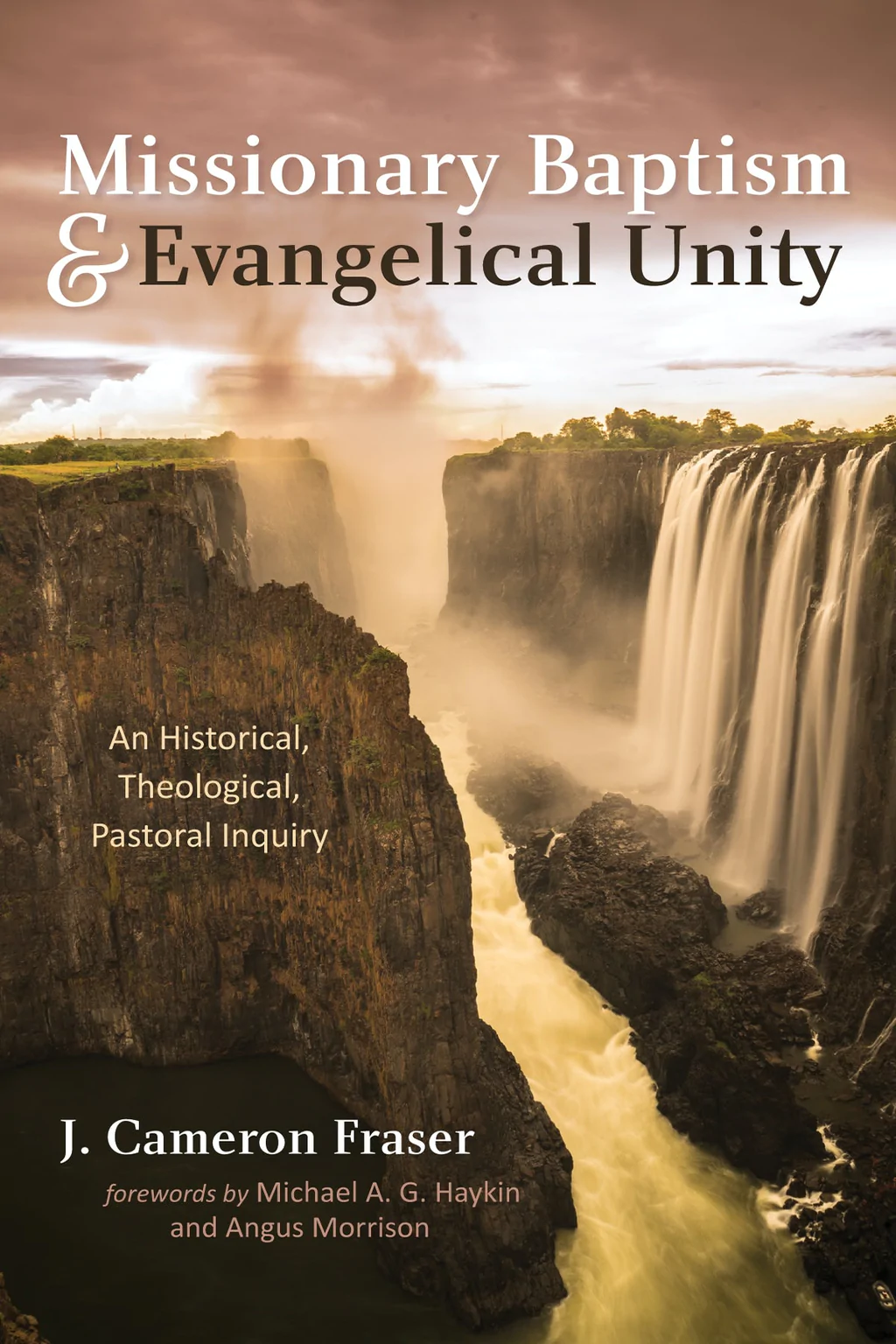
J. Cameron Fraser
Reviewed by: James W. Scott
Missionary Baptism and Evangelical Unity, by J. Cameron Fraser. Wipf & Stock, 2021. Paperback, 126 pages, $17.00. Reviewed by OP member James W. Scott.
Many Presbyterian and Reformed Christians presume baptized infants to be regenerate, while many others presume them to be unregenerate. Cameron Fraser, who was raised in Scottish Presbyterianism and has spent most of his adult life as a Christian Reformed minister in Canada, examines the Presbyterian and Dutch Reformed traditions on both sides of this issue in this book. He adopts the latter view and develops its implications for church unity.
Fraser observes that his preferred view is much like that held by Baptists (especially Reformed Baptists). In a paedobaptist church, children typically are baptized as infants and profess their faith publicly as teenagers or young adults; in a credobaptist (believer’s baptism) church, children typically are dedicated as infants and profess their faith and are baptized as teenagers or young adults. The main difference, it seems, is when the water (and how much of it) is applied. That being so, Fraser recommends that, in the interest of evangelical unity, churches should offer parents of newborn children the choice of baptism, dedication (without water), or nothing, and then focus on bringing them to repentance and faith, to be expressed in due course by a public profession, accompanied by baptism for those who were not previously baptized.
Fraser’s concept of “missionary baptism” derives from the household baptisms in Acts. He considers it unclear whether there were any small children in the households that were baptized, and he cites scholars who find evidence of both infant baptism and infant dedication in the ancient church. Extending this pattern to families already in the church today, Fraser argues that churches should offer both infant baptism and infant dedication to parents.
In developing his thesis, Fraser relies heavily on various theologians and scholars, particularly William Cunningham and Joel Beeke, and presents both sides of issues fairly before reaching his own conclusions. His book is thought-provoking and shows that Reformed understanding of infant baptism has not been uniform.
Fraser quotes the writings of others extensively. A spot check of several block quotes reveals a few copying errors, though the meaning is rarely affected. However, word substitution in the concluding sentence of a long quotation of the present reviewer obscures the crucial point: in Acts, “heads of households believed [not were baptized] ‘with’ [i.e., accompanied by] whatever infants were in their families,” and then all in the household were baptized (49). Fraser quotes the original version of the article, which does contain the error, but he cites the corrected online version, assuming it to be the same as the original version.
The dual-baptism proposal faces several obstacles. First, if a church believes that there is a definite scriptural imperative to baptize infants (or not to), it cannot in good conscience offer an option. A dual-baptismal practice implies scriptural and thus divine indifference on the matter, which few Christians have ever been willing to accept. Second, if a child derives any spiritual benefit from baptism that does not come from dedication, then an alternative to baptism should not be offered. Third, if a paedobaptist church is going to fully accommodate the credobaptist model, it will have to remodel its worship facility to include a baptistry (for immersions) and a changing room. Fourth, what if someone baptized as an infant in a paedobaptist church later wants to be baptized as a believer—does that church abandon the principle that one should not be rebaptized? Should the church allow its holy sacraments to be consumer driven?
While greater evangelical unity is highly desirable, one must question whether churches offering options for baptism is the way forward.
March 30, 2025
On the Trail with a Missionary
March 23, 2025
Midnight Mercies: Walking with God Through Depression in Motherhood
March 16, 2025
March 09, 2025
Zwingli the Pastor: A Life in Conflict
March 02, 2025
February 23, 2025
African Heroes: Discovering Our Christian Heritage
February 16, 2025
© 2025 The Orthodox Presbyterian Church